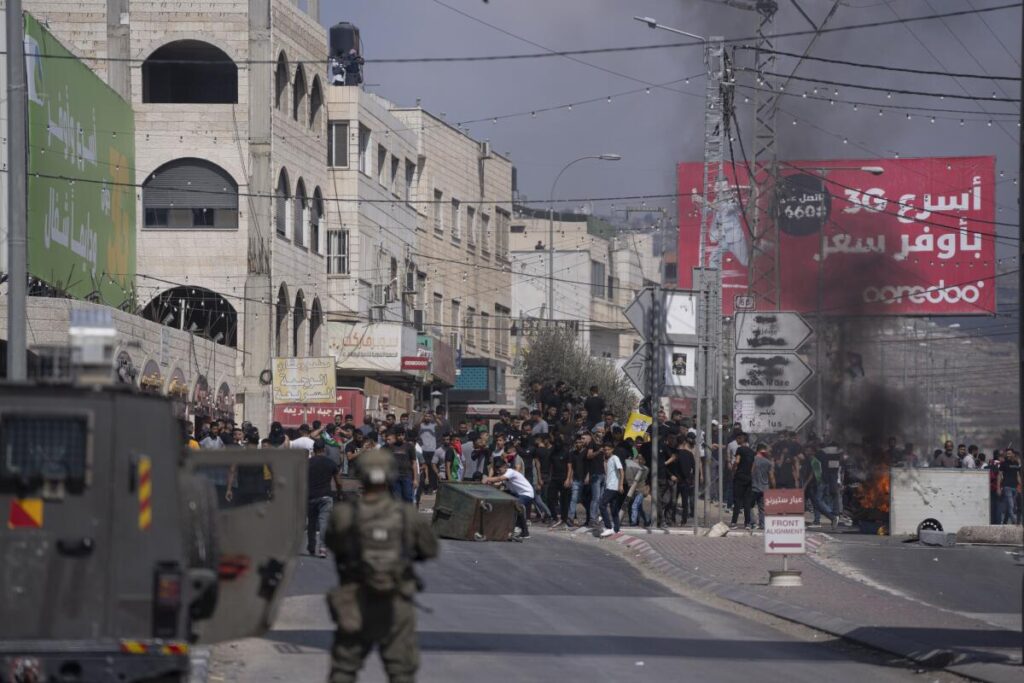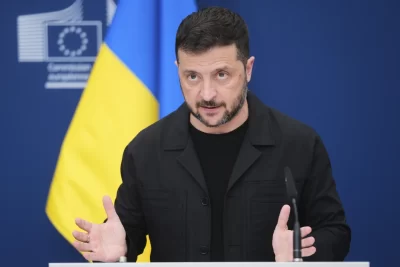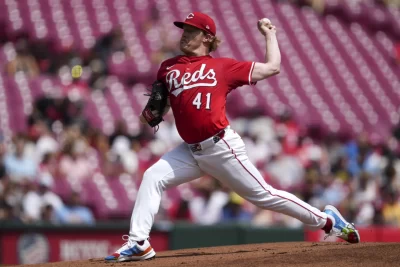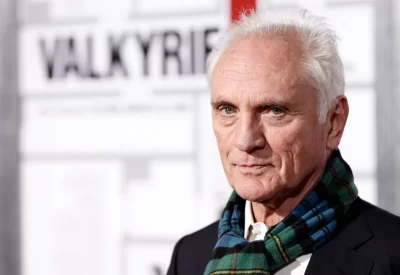
Palestinians on Friday marched in anger to bury a 19-year-old killed by Israeli fire after Jewish settlers rampaged through a flashpoint town in the occupied West Bank the night before.
The youth’s death, coming as tensions escalate during the Jewish holiday season, marked the latest in a surge in Israeli-Palestinian fighting that has so far killed nearly 200 Palestinians this year — the highest yearly death toll in about two decades. Some 30 people have been killed in Palestinian attacks on Israelis during that time.
It remained unclear on Friday who fired the bullet that killed Labeeb Dumaidi, a 19-year-old Palestinian from the town of Hawara. The Israeli military said soldiers shot a Palestinian who threw a cinderblock at an Israeli car.
Palestinians in Hawara claimed that an Israeli settler shot and killed Dumaidi, a freshman majoring in graphic design at the nearby Palestine Technical University, while he was standing on his rooftop watching clashes unfold on the street between settlers and Palestinians. The conflicting accounts could not immediately be reconciled.
Following a brazen Palestinian shooting attack on an Israeli motorist along the volatile route through Hawara on Thursday, mobs from nearby Israeli settlements stormed into the town. Scores of settlers wreaked havoc, said Hawara mayor Moeen Dmeidi, torching at least three cars, shattering the windows of six homes and spraying bullets.
That rampage, and other sporadic acts of revenge on Hawara residents following Palestinian shootings in the restive northern West Bank, have drawn attention to a sharp surge in settler violence under Israeli Prime Minister Benjamin Netanyahu’s far-right government.
Palestinians say that there is even more impunity for settler violence than ever with the Israeli army doing little to stop the spiral and powerful far-right ministers at times appearing to endorse the assaults with anti-Arab rhetoric.
When the Israeli military arrived late Thursday to disperse the angry crowds of settlers and Palestinians, residents said that the violence only escalated. Palestinians threw stones at soldiers, the army said, damaging Israeli cars. Soldiers responded with tear gas, rubber bullets and live fire.
When the soldiers and settlers retreated, Hawara residents said they were left to face shattered supermarkets, charred vehicles and traumatized children. Even the windows of the local Kentucky Fried Chicken were smashed.
“At this point I’m used to it, but my children still get terrified,” said 39-year-old Sultan Abu Saress, a father of three children who owns a car dealership in the town. At least 20 of his cars were damaged by settlers throwing stones Thursday night.
He said that starting a successful business in Hawara was his biggest accomplishment in life and that he’d never leave, even if settlers try to force him.
“This is becoming a truly impossible place to live,” Abu Saress said. “But my parents were Palestinian refugees. I am not going to become one.”
In response to the violence and the earlier Palestinian shooting attack against an Israeli family in a car, the Israeli military ordered the closure all Palestinian shops along the town’s main highway. Hard-line National Security Minister Itamar Ben-Gvir praised the closure, saying that Israeli lives “come before the freedom of movement (and trade) of Palestinians.”
Netanyahu asked security forces to impose further “security measures” in the area, without elaborating. He also instructed the army to expedite construction on a bypass road that circumvents Hawara.
Such roads — a key part of Israeli Finance Minister Bezalel Smotrich’s plans to exert more control over the West Bank — are off-limits to Palestinians and specifically designed to connect large West Bank settlements to Israel. Smotrich on Friday toured Hawara, promising his supporters that he would work hard to defend Israeli settlers who fear Palestinian attacks in the area.
“We will not be silent until, with God’s help, we restore security and calm to all Israeli citizens,” he said.
Israel captured the West Bank — along with east Jerusalem and the Gaza Strip — in the 1967 Mideast War and occupied the territory through decades of failed peace talks.







